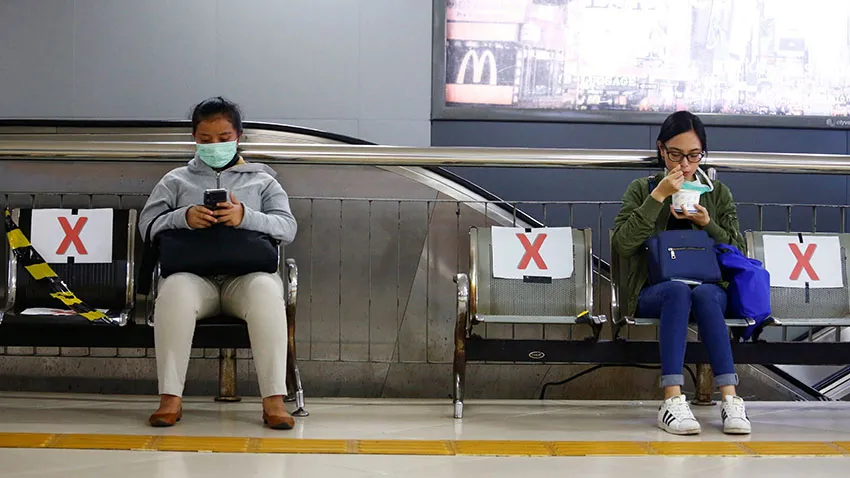
Jakarta will impose stiff penalties on those breaking its large-scale social restrictions, including prison sentences, as authorities scramble to curb the spread of the novel coronavirus in the country's capital.
Jakarta had already been under general social distancing guidelines, and while many schools, offices and shopping malls had closed to comply, the effort was voluntary without repercussions for violators. But as the capital has become the epicenter of the country's outbreak, authorities are clamping down.
Jakarta Gov. Anies Baswedan told a news conference Thursday that those who fail to comply with social distancing measures will face up to a year in prison and a possible fine of up to 100 million rupiah ($6,200).
Two-wheel bike taxis -- a popular mode of transportation in Jakarta -- will be banned in addition to reduced hours and capacity on public transportation. The new regulations will take effect from Friday at 12:00 a.m., and last until April 23.
Gatherings of five or more people will also be banned and wearing masks will be mandatory when going outside for activities like shopping. Schools, entertainment venues and most offices will be closed.
Businesses that serve essential needs, as well as government agencies and diplomatic offices, will stay open.
"Our goal is... to save our families, ourselves, neighbors, colleagues and make the spread of the virus manageable," Baswedan said.
"This is a challenge for us, the people of Jakarta. If you face challenges, you can always pass it," the governor added. "The next 14 days will be an opportunity [to spend time] with family and neighbors. Make it an opportunity to be closer."
The stricter measures follow a steady rise in COVID-19 cases in the densely populated capital of about 10 million people; it accounts for nearly half the more than 3,200 confirmed cases and more than 280 deaths in the country. President Joko "Jokowi" Widodo had been reluctant to impose general lockdown measures adopted in other countries, preferring social distancing policies.
However, several regional governors requested to impose tighter measures, and on Tuesday, health minister Terawan Agus Putranto signed a central government order allowing Jakarta to introduce tougher restrictions on public life.




















